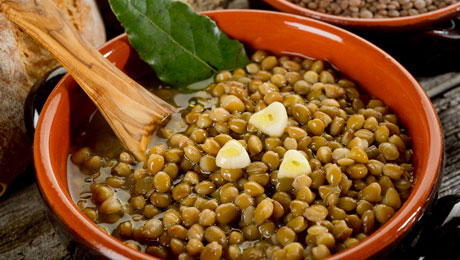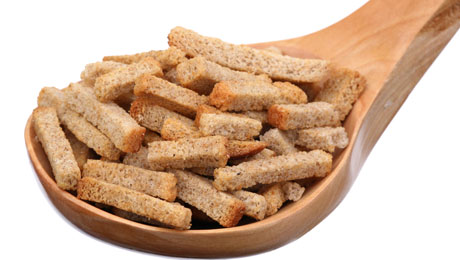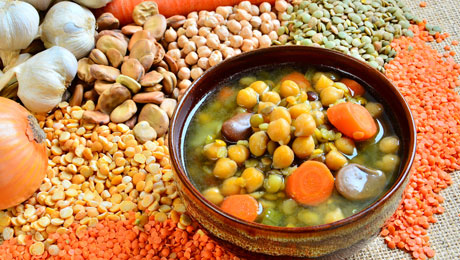Picture: www.clickatlife.gr
For some people, Lent is an opportunity for a spiritual and religious purification, and for others, it is ideal for detoxification. No matter which one you will choose, the truth is that Lenten fare is good for the body.
Eating meat dominates the modern diet. Therefore the period of abstinence is a real paradise. Vegetarian (mostly) Lent is an opportunity to rethink your diet. Let's look at the benefits:
1. The choice of food during fasting is mainly among bread, fruits, legumes, nuts, seafood and vegetables - a diet that can easily be considered as a variant of vegetarianism.
2. However, a lot of people confuse fasting with a diet. There is no evidence that fasting leads to weight loss. Of course, it seems that during fasting there is an increased carbohydrate intake and a reduction in fat intake. But if you follow a harmonious diet, then you might lose some weight.

3. One of the main benefits of fasting is detoxification. The body disposes of stored toxins. Absence of red meat and store-bought fatty foods also helps this.
4. Fasting allows the digestive system to have a rest after months of eating meat. After a period of fasting, digestion and excretion processes are renewed.
5. Fasting contributes to resolving inflammation such as rheumatoid arthritis and helps control allergic reactions, including asthma and allergic rhinitis.
6. It leads to draining of unnatural fluids concentrations in the body such as swelling of the ankles and legs and swelling of the abdomen.
7. Fasting is a natural response to blood pressure. Eating vegetables, fruits and seafood helps us reduce high blood pressure and therefore avoid cardiovascular diseases. Of course, it would be better if you kept certain food choices during fasting after Easter as well.

8. Another benefit of fasting includes the revaluation of a good taste. To put it simply, after a period of fasting, the sense of taste is renewed and food is tastier.
9. It is a fact that fasting shrinks the stomach. What actually happens is that the stomach returns to its natural size which was changed by fats and unhealthy components of modern nutrition.
10. In Greece, a study by the University of Crete has proved that those who strictly observe the Orthodox Lent have a lower level of cholesterol (about 20%). Fasting does not affect the development of children, since energy needs are covered.
11. Fasting reduces the presence of saturated fatty acids (red meat, animal products), and provides an abundance of mono unsaturated fatty acids (from olive oil and olives for example).

Be careful, though:
1. Since dairy products should be avoided during the period of fasting, blood calcium levels can get lower. Therefore, calcium should be restored by increased consumption of milk and yogurt in the periods between fasting.
2. Eat seafood in moderation and choose food which is not fried, since it can contain a lot of fat, and is rich in cholesterol.
3. You should bear in mind that canned foods are high in sodium and preservatives.
4. Since fasting does not offer many sources of protein, you may ingest more calories than you need. As is well known, the presence of protein in the diet contributes to the development of a sense of satiety. Lean foods, most of which contain carbohydrates, cannot do this.